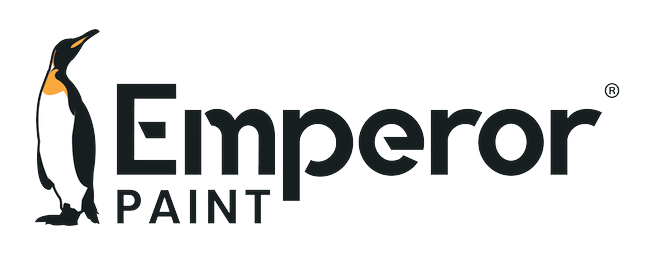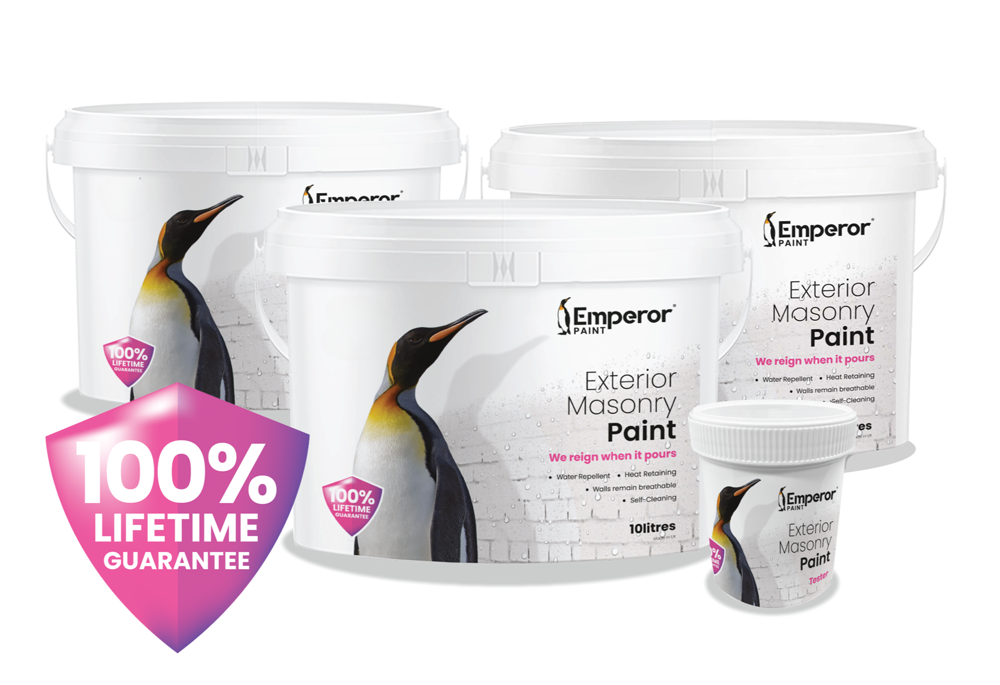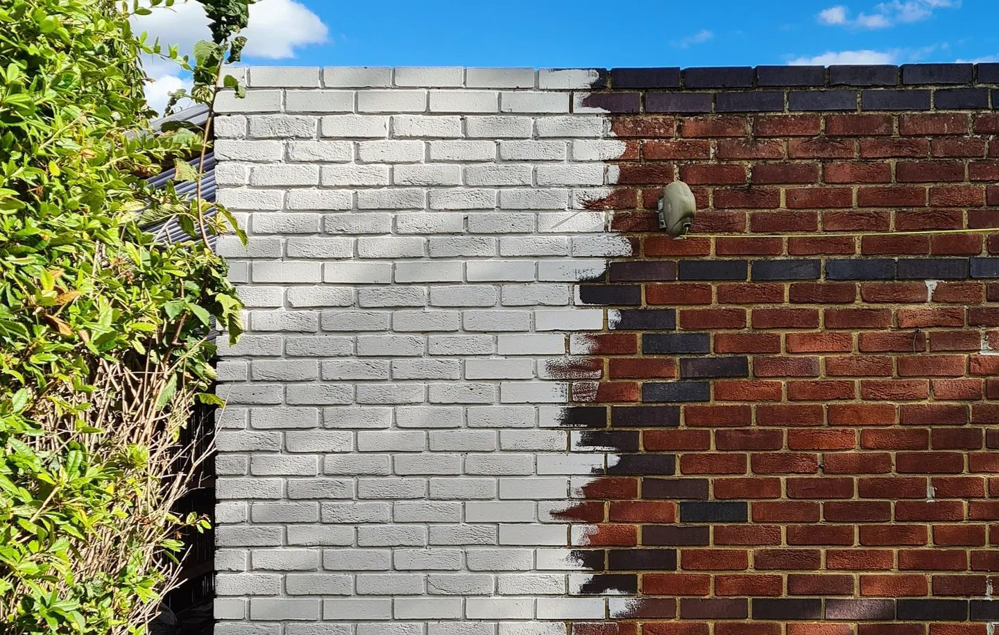
As any professional decorator will tell you, you are only as good as your tools. That is why ensuring you use the best quality products when taking on an exterior decorating project is essential if you want to achieve long-lasting, beautiful results. In the case of masonry paints, this is even more important due to the sheer number of factors that are involved in performance. But what is the difference between masonry paints and what constitutes a 'cheap masonry paint'?
What Is Masonry Paint?
Let's start by covering exactly what we are talking about when we refer to 'masonry paint'. Masonry paint is a type of paint that is specifically designed for exterior brick, stone, render and other exterior walled surfaces. These are more often than not used on the outside walls of properties, but also on garden walls and retaining walls.
These paints differ from standard emulsions in a number of ways, but mainly due to their weather protection. Especially here in the UK, exterior paints need to endure a wide variety of weather conditions, from wet and freezing winters to high levels of UV in the summer. In order to deal the weather conditions that an exterior paint must withstand, all masonry paints offer some form of weather protection.
Masonry paint is also designed to have higher levels of adhesion in order to withstand any wear and tear that an internal emulsion would not withstand, as well as being suitably formulated to edhere to exterior walled surfaces, including brick, render and stone.
The Problem With Cheap Masonry Paints
There a number of issues that can arise with masonry paints which can not only impact the performance of the paint but also the building it is applied to. Here are some of the common problems that can arise if you use a 'cheap' masonry paint that has a lower quality formulation.
1. LACK OF WEATHER PROTECTION
As we have mentioned, weather protection is at the core of what makes a masonry paint what it is. The problem is, this is an area of much misinformation when it comes to modern masonry paints.
There are numerous terms that are used to describe weather protection, including water repellent, waterproof, water resistant & weatherproof. The term waterproof refers to something that completely prevents moisture entering the surface. The reality is however, the vast majority of masonry paints, especially cheap masonry paints are not waterproof. This is why they are often referred to as water resistant or weatherproof, or even in some cases as waterproof when they are not fully waterproof.
2. BREATHABILITY
Weather protection and breathability go hand-in-hand. Breathability refers to how much water vapour can freely pass through a surface. The higher the breathability, the quicker water vapour can pass through the pores and the drier the surface will be.
Breathability is crucially important for all properties new and old, as poor breathability causes any moisture that has either entered the building from the outside or moisture from inside the building to become trapped. This is what causes moisture to gradually build-up, causing significant problems long-term such as damp and paint peeling.
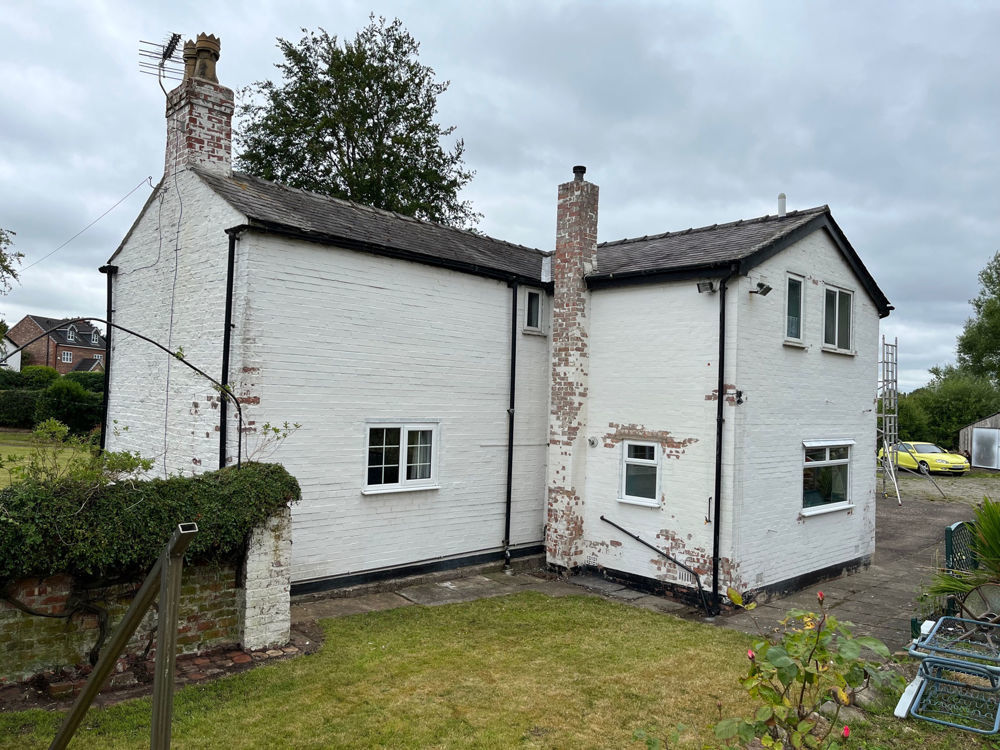
Just like the weather protection masonry paints offer, the breathability of these paints is often confused due to marketing jargon. While a paint may be referred to as 'breathable', this can often mean it has some level of breathability, even though this level is low. This is why it is crucial for the SD value of a masonry paint to be considered. An SD value is a way to measure the breathability of a surface, with anything below 0.5 being considered breathable by British Standards. The lower the SD value, the more breathable the paint and the better it will allow not only the paint but the property to perform.
While some masonry paints are highly breathable, such as limewash, these often do not have the weather protection required to prevent the issues caused by water ingress. That is why weather protection and high breathability are equally as important for protecting exterior walls from weathering.
3. THE FINISH
The ability for a masonry paint to reduce moisture levels of the surface it is applied to should always be the primary concern, however as with any decorating project, the finish you achieve is something that must be right.
When discussing the finish that a paint achieves, there are a number of things to consider. The thing that most people look for in a good quality paint is what is often referred to as 'coverage'. This is often used describe how well as paint covers a surface, however this is in fact the opacity of a paint. Opacity is what allows the paint to cover the surface easily and ensures you don't achieve a patchy finish. Coverage on the other hand is simply the amount of paint that is required to achieve the manufacturer's recommended paint film. In reality, a paint could have extremely high coverage but very poor opacity, requiring three or even four coats in order to get the desired finish.
The quality of a paint formulation and in turn the quality of the finish it can achieve is down to a number of factors; namely the quality of the resins and the amount of volume solids.
Resins are individual ingredients within paint that give it features such as weather protection, durability and UV resistance, to name a few. By using higher quality resins, the performance of each of these features is increased, providing the paint as a whole with a higher level of performance.
The volume solids are what is left in the paint after the solvents have evaporated away. These solvents evaporating is what causes the paint to dry on the surface it is applied to, leaving behind a film of paint. If a paint has low volume solids then a large amount of the formulation is solvent, which will be lost when the paint dries. This leaves a small paint film on the surface that can become weathered off easily over-time. For this reason, high volume solids is what helps provide good-quality paints with better long-term performance.
What Happens If A Paint Is Low Quality?
While a bit of moisture may not seem like a big issue, it is in fact the single biggest cause of masonry paint failure. When moisture enters the masonry it can build-up underneath the paint, causing the paint film to come away from the wall. This is more often than not the cause of bubbling, peeling or flaking paint.
The problems moisture causes doesn't stop there. By causing exterior walls to become saturated, a lack of weather protection can lead to penetrating damp, as moisture from rainfall can soak through the paint, into the external wall and subsequently into the internal wall of a property. This is particularly a problem with solid wall properties, but can also impact properties with cavity wall insulation.
One of the lesser-known problems that cheap masonry paint can contribute towards is heat loss. Wet walls transfer heat much quicker than dry ones. Think wet clothes and how these can cause us to get cold, the same applies to exterior walls! By allowing moisture to enter through the paint film and into the exterior wall, heat loss can increase when compared to a property that is painted using a fully waterproof and highly breathable paint.
Lastly, there is also a significant appearance difference between a paint with high weather resistance and one with poor weather resistance. Organic growth such as lichens, mildew and algae all develop in wet, damp conditions. By absorbing moisture, paints with poor weather resistance can result in higher levels of organic growth and discolouration, leading to them needing to be repainting after years or even months in some cases.
The reality is, cheap masonry paint not only leaves a poorer finish but ultimately will not perform long-term due to the cheaper ingredients used in the formulation. Opting for a cheaper paint can save you money in the short-term, however some masonry paints will last as little as 12 months before needing to be repainting, ultimately costing more time and money than simply opting for a slighter more expensive, but higher quality masonry paint.
The Ultimate Masonry Paint
When we developed our innovative formulation, we wanted revolutionise how masonry paints perform. Having seen how standard masonry paints were not properly protecting houses from the elements, we thought it was time for change.
We had two objectives when we developed our masonry paint. Firstly to produce a paint that prevented water absorption and secondly to ensure the paint did not impact the breathability of exterior walls once applied. The result of this is that we developed our super hydrophobic nano-technology which lines the pores of exterior walls without sealing these pores, preventing water absorption but still maintaining an open-pore structure and therefore offering high breathability.
The concept is simple, our nano-technology comprises of millions of microscopic pyramids that mean water beads cannot sit on the surface, causing them to simply roll away. This creates what is known as a 'super hydrophobic' surface, as water is completely repelled from it before it can soak through. These pyramids still have small gaps however, that are small enough for water vapour to pass through, ensuring full breathability of the property is maintained. This is all invisible to the naked eye, which is why we call it our nano-technology.
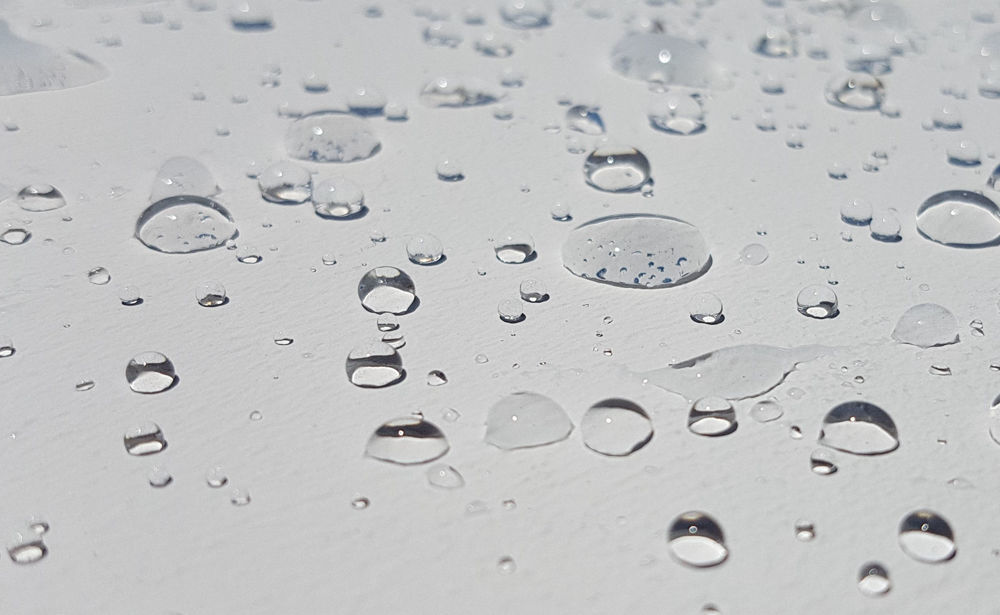
This all results in Emperor Masonry Paint reducing water absorption by 96% while also having an SD value of 0.03. This means it offers complete weather protection, while having a breathability level similar to limewash. The British Standard for breathability is 0.5, meaning Emperor Masonry Paint far exceeds this, making it highly breathable. In comparison, a standard masonry paint can often comes with an SD value closer to 0.6 or even higher.
By keeping the masonry dry, Emperor Masonry Paint significantly reduces the problems that standard masonry paints can cause and other moisture-related problems, including penetrating damp, organic growth, discolouration and heat loss. It also has UV resistance, so will not lose colour due to UV degradation.
Now for the important part, Emperor Masonry Paint completely resists peeling, flaking or blistering due to moisture not becoming trapped underneath the paint film. The paint also chemically bonds to the surface it is applied to rather than simply creating a film on the surface, ensuring an extremely strong adhesion that cannot be broken.
In independent UKAS accredited testing, it was subjected to harsh weather conditions for 25 years, after which it showed any signs of change in appearance or performance. Many cheap masonry paints often base their lifespans on the based possible conditions, whereas Emperor Masonry Paint's performance has been based of harsh weather conditions. We're so confident it will exceed this 25 year proven performance due to the way it showed no signs of deterioration, that we offer a lifetime guarantee.
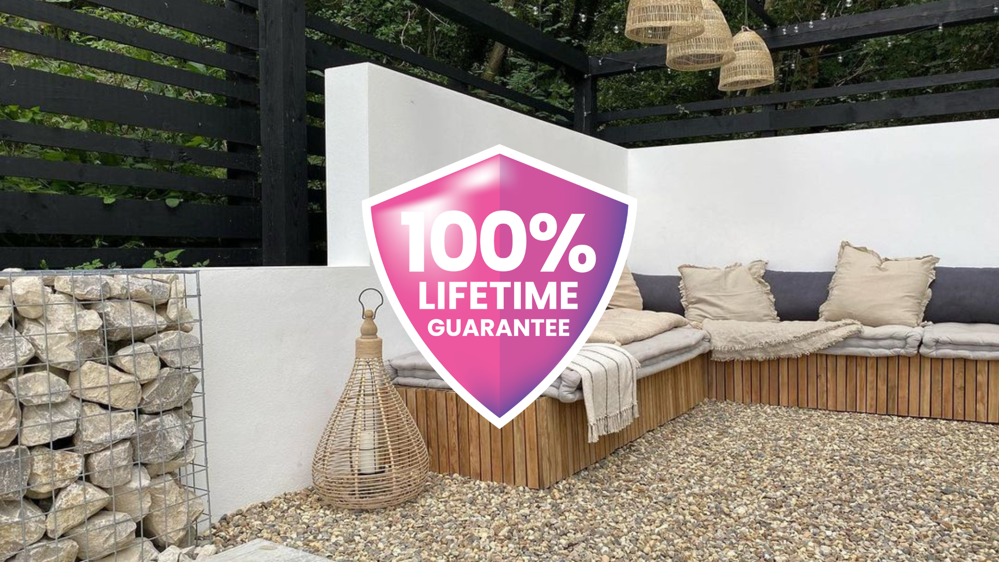
As we have mentioned, by preventing water absorption Emperor Masonry Paint helps prevent problems relating to moisture. Potentially the most significant aspect of this is the thermal benefits of keeping exterior walls dry. By keeping exterior walls dry, Emperor Masonry Paint has been shown in independent testing to keep walls up to 6°C warmer on average compared to untreated exterior walls.
Frequently Asked Questions
Q. CAN USING A HIGHER QUALITY PAINT SAVE ME MONEY?
We like to say a job done well is a job done once. The reality is, while opting for a cheap masonry paint could save you money initially, there is always a reason why something is cheap.
As with everything, value is more important than cost. For example, if a poorer quality cheap masonry paint requires three coats of paint and will last 2 years, this will cost you more in the long-run than a high-quality masonry paint that will require two coats of paint and will last 25 years or more. The cost of paint, tools, scaffolding (in some cases) and the time taken in order to repaint the exterior walls will cost much more than doing it properly first time round.
If you have a small exterior wall and you are happy to repaint it annually to give it a refresh, then a cheap masonry paint may be sufficient for you. On larger projects or where both performance and appearance are equally important, paying slightly more initially will save you money and time further down the line.
Furthermore, the energy saving properties of Emperor Masonry Paint can also contribute to reducing energy costs by reducing unnecessary heat loss.
Q. I HAVE FOUND A CHEAP MASONRY PAINT THAT SAYS IT WILL LAST 15 YEARS, IS THIS TRUE?
Unfortunately, like any product paint doesn't always do what it says on the tin. While a paint may claim to have a certain performance, this could be in ideal conditions which in the UK isn't very likely. We recommend that when researching a masonry paint to look for independent testing that has been conducted.
Q. I USED A STANDARD MASONRY PAINT BUT THE COVERAGE WAS NOT THE ONE STATED, WHY IS THIS?
The coverage of masonry paint will depend on a couple of factors. Firstly, the texture of the surface will have an impact, with heavy textures such as pebbledash reducing coverage by 50% compared to a smooth surface. The second reason is that some manufacturers can state the recommended coverage for their paint under the best conditons and when applied perfectly. The reality is, this isn't always achieveable with a brush or a roller and by the average homeowner.
Emperor Masonry Paint will achieve a coverage of 5-6m2 per litre, which is an accurate, user-friendly coverage rate that can be achieved by anyone on a smooth or semi-smooth surface. This coverage can be less than lower quality paints, however this allows the paint to create a thicker paint film, which help provide higher levels of durability and water protection.
Have any questions or need some advice on how to carry out a project? Our team of experts are on hand to assist you no matter your problem. Contact them today by emailing info@emperorpaint.co.uk or calling 0161 509 9009. Alternatively, shop Emperor Masonry Paint today and get free delivery on all orders.

